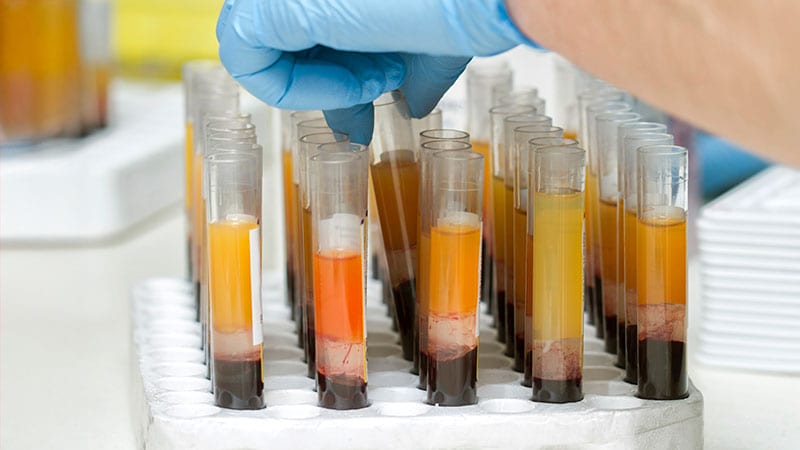NEW YORK — The US Food and Drug Administration (FDA) continues to send letters advising clinicians that hair regenerative therapies are not yet proven safe and effective, but this determination is challenged by published data, according to an expert.
Widely used techniques for hair regrowth in patients with androgenic alopecia include the application of platelet-rich plasma (PRP), stem cells, and exosomes, all of which are supported by data, according to Gary Goldenberg, MD, assistant professor of dermatology and pathology, Icahn School of Medicine at Mount Sinai, New York City.
The lack of standardized and guideline-recommended techniques for regenerative hair treatments might be one reason that skeptics place their focus on patients who respond poorly for proof that these regenerative techniques do not work, but Goldenberg said this is unrealistic.
Regenerative Therapies Do Not Work for Everyone
At the 27th Annual Winter Symposium — Advances in Medical and Surgical Dermatology (MSWS) 2024, Goldenberg said that when speaking specifically about PRP, “people complain that it doesn’t work for everyone, but there is no therapy that works for every patient.” For example, he pointed out that even with the most effective therapies for psoriasis, “you get variable results.”
Regenerative medicine involves employing living functional tissue to repair or replace tissue damaged by disease, age, or congenital defects. While there have been numerous theories to explain the benefit of PRP injections, Goldenberg said that the ability of this therapy to prolong the anagen phase of hair growth is now well established.
Clinical studies of PRP date back more than 25 years. According to Goldenberg, both placebo-controlled and split-scalp trials have been published that support meaningful increases in hair density.
In his own experience, Goldenberg said that responses fall on a bell curve. Those with a disappointing result and those with exceptional hair growth appear at the ends of this curve, but the majority of patients achieve some improvement after multiple monthly injections. Those who achieve benefit typically maintain the benefit if the injections are repeated every 3 months.
“If you are not using PRP in your practice to treat androgenic hair loss, you are doing your patients a disservice,” Goldenberg said.
Often, results with PRP can be improved when exosomes are employed adjunctively, according to Goldenberg. There is growing interest in this therapy, but he cautioned clinicians not to be misled by marketing claims.
“There are no FDA-approved exosomes. Period,” he said, noting that such claims and other types of misinformation can confuse patients and clinicians.
Plant-Derived Exosomes Are an Option
Exosomes are membrane-bound vesicles secreted by cells. They contain proteins, lipids, nucleic acids, and microRNAs that can signal cell repair and have modest anti-inflammatory and antioxidant properties, according to Goldenberg. Rather than human-derived exosomes, he said he prefers plant-derived products for hair regrowth because these, unlike the human variety, have little to no variability.
In addition, two different human-derived regenerative products cannot be administered together. Goldenberg said that he typically administers these therapies in sequence, not at the same time.
When he uses both, Goldenberg administers the PRP first by injection at the level of the dermal subcutaneous junction. Microneedling, which has been associated with hair regrowth by itself in some studies, can be used to stimulate blood flow and create channels when administering PRP and can also improve penetration of the subsequent administration of exosomes.
Stem cells, another option for regenerative treatment of hair loss, can be derived from several sources, including adipose tissue. He often offers this approach to patients who are already undergoing liposuction. Filtering stem cells from the fat that has been removed, their injection into the scalp can be “an added benefit’ for stimulating hair regrowth.
While all of these therapies are considered experimental by regulatory authorities in the United States, he believes there is compelling supportive clinical evidence of benefit. These products do not necessarily cure hair loss or typically lead to full regrowth, but they can improve and maintain the appearance of the hair.
Goldenberg acknowledged that larger studies are needed to generate more guidance on optimal techniques, but he believes that the existing evidence of benefit and his own experience already provide support for regenerative medicine as a clinical tool for hair loss.
There are numerous published studies supporting the role of PRP, including a randomized placebo-controlled trial published in 2020, but none has had a design that would support regulatory approval. For example, the placebo-controlled trial only included 35 patients, and the greater increase in hair density following PRP was not significantly greater than that seen in controls.
There is also a lack of consistency with which PRP is performed, according to Evan A. Rieder, MD, who served as a full-time faculty member in the Department of Dermatology at New York University, New York City, prior to starting a private practice in New York City.
“With small studies and variability of treatment systems, preparation methods, and techniques, it can be difficult to analyze PRP’s data,” said Rieder, who was asked to comment on the topic.
Yet, he agrees that the “majority of data and clinical experience has been positive.” Overall, he considers PRP to be “effective in many people living with male pattern hair loss, and it is a very common procedure for people looking for comprehensive, multimodal treatment.”
In practical terms, “I consider PRP to be a tertiary level recommendation after minoxidil and 5-alpha-reductase inhibitors,” he said.
Goldenberg reported no financial relationships relevant to this work. Rieder has financial relationships with Allergan, Almirall, Bristol Myers Squibb, L’Oréal, Ortho Dermatologics, and UCB.
Ted Bosworth is a medical journalist based in New York City.
Source link : https://www.medscape.com/viewarticle/platelet-rich-plasma-considered-effective-not-approved-hair-2025a100012f?src=rss
Author :
Publish date : 2025-01-16 12:06:48
Copyright for syndicated content belongs to the linked Source.
